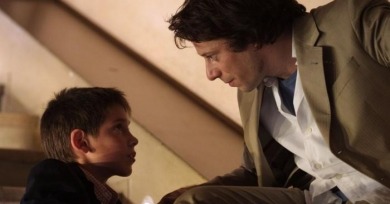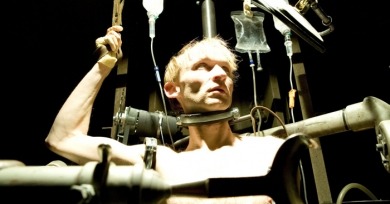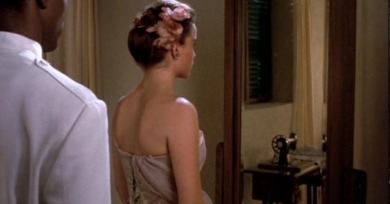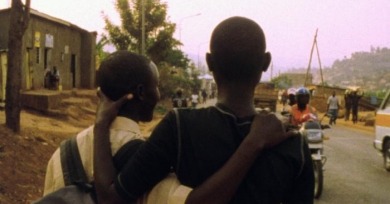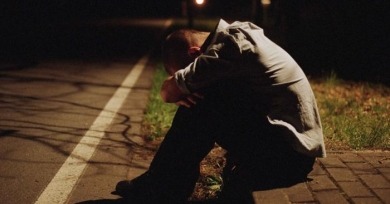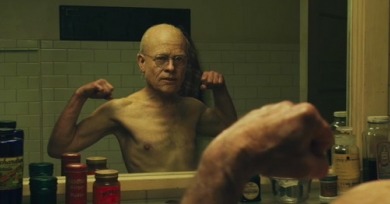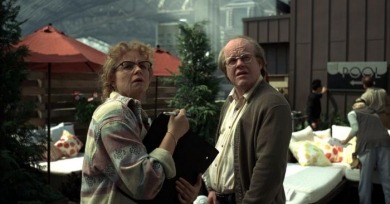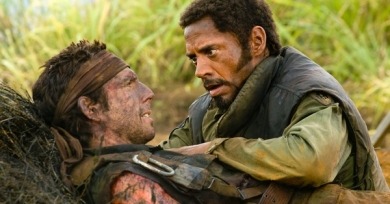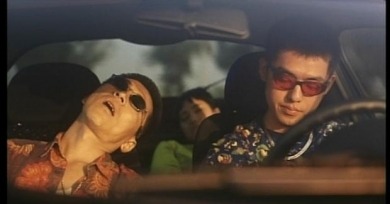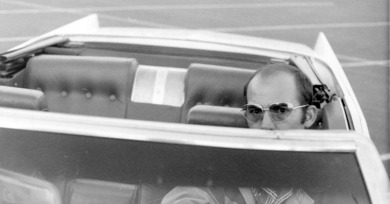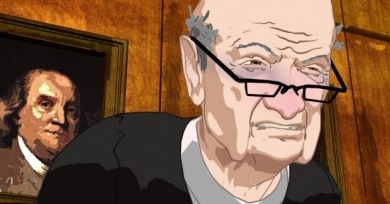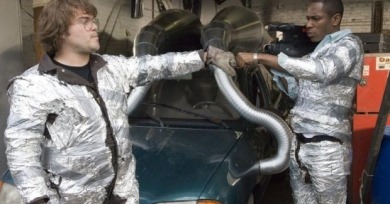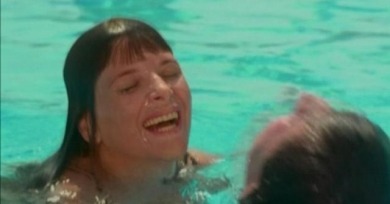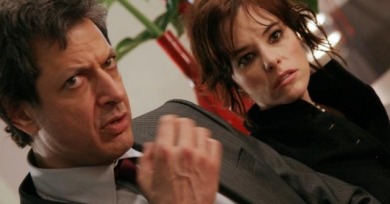Elbert Ventura
Relentlessly surprising, Kings and Queen was (now famously) made with Truffaut's dictum “Every minute, four ideas” as its animating principle.
A rallying cry for the put-upon boss, Mike Judge's Extract makes for a perverse double feature with Office Space, Judge's cult favorite about cubicle life.
Taxidermia is a drunken, lumbering lout of a movie. It grabs you by the scruff of the neck, gives you a noogie, belches in your face, and slaps you on the back.
Claire Denis came to us seemingly fully formed. Watching Chocolat, her first feature film, more than 20 years after it came out, one is struck by how unmistakably hers it is.
Rough around the edges though it may be, director Lee Isaac Chung’s film is an intermittently lyrical and genuinely affecting work that at times even emits the shock of the new.
Christian Petzold’s Jerichow plays like a modern riff on The Postman Always Rings Twice, with a globalized European spin.
Resembling nothing so much as an unholy mindmeld between Judd Apatow and the New York Times’ Jennifer 8. Lee, I Love You, Man would be a disappointment but for the low standards that mainstream Hollywood comedy has beaten into us.
The handiwork of Eric Roth, best known for Forrest Gump, is evident in this prestige production, a decades-spanning epic whose singular premise and piercing loneliness are ultimately overwhelmed by a soggy script trafficking in counterfeit lyricism.
Kevin Smith’s career is one of the mysteries of American film culture. He’s eight movies into his career—eight!—and he has shown zero progress.
Synecdoche, New York opens with a scene of finely observed domestic squalor. A suburban home rouses itself for the day. A middle-aged man declares “I don’t feel well” before sitting down to breakfast.
With its focus on actors and the movies, Tropic Thunder emerges as Stiller’s grand rumination on two obsessions, Hollywood solipsism and our pop education.
Even the title is unerring. Goodbye South, Goodbye: the phrase evokes a new beginning, the promise of motion, a regretful departure, an elegiac wallow, and sweet release, all at once. That density of suggestion pulsates in nearly every scene of Hou Hsiao-hsien’s movie.
Hunter S. Thompson’s prose was nervy and pugnacious, his judgments bullying and hyperbolic, his life as volatile as any in postwar American letters. Gonzo: The Life and Work of Dr. Hunter S. Thompson couldn’t be any more different in mien and spirit.
Let the overstuffed The Edge of Heaven be a lesson: Just multiplying and magnifying your obsessions does not make them any more powerful.
As restless and flashy as the radicals it valorizes, Chicago 10 is an apocalyptic dispatch from the past refashioned as a slick flyer for the present.
For a director drawn to neurosis and insecurity, Michel Gondry is remarkably sure of himself. Insistently idiosyncratic and unworried about self-indulgence, he seems unable to second-guess his ideas—which would be a problem if his ideas weren’t so inspired.
Juno is occasionally funny, rarely intelligent, and often annoying. A crowd-pleaser for people who like to think they’re above crowd-pleasers but are actually not, it’s going to be huge.
Divided into chapters that impose order on Chris’s peripatetic life—a decision that seems in keeping with his propensity to see his adventures through the prism of narrative—Into the Wild takes a nonlinear approach to its preordained destination.
It doesn’t take long to realize that we aren’t watching a scene in Michael Haneke’s Code Unknown but from something tentatively called “The Collector,” a movie within Haneke’s movie.
How apt that the movie is about the ineradicable—yet unrecoverable—past. Henry Fool left us with the image of Thomas Jay Ryan’s title character, a fugitive from the law, making a dash for a plane.
